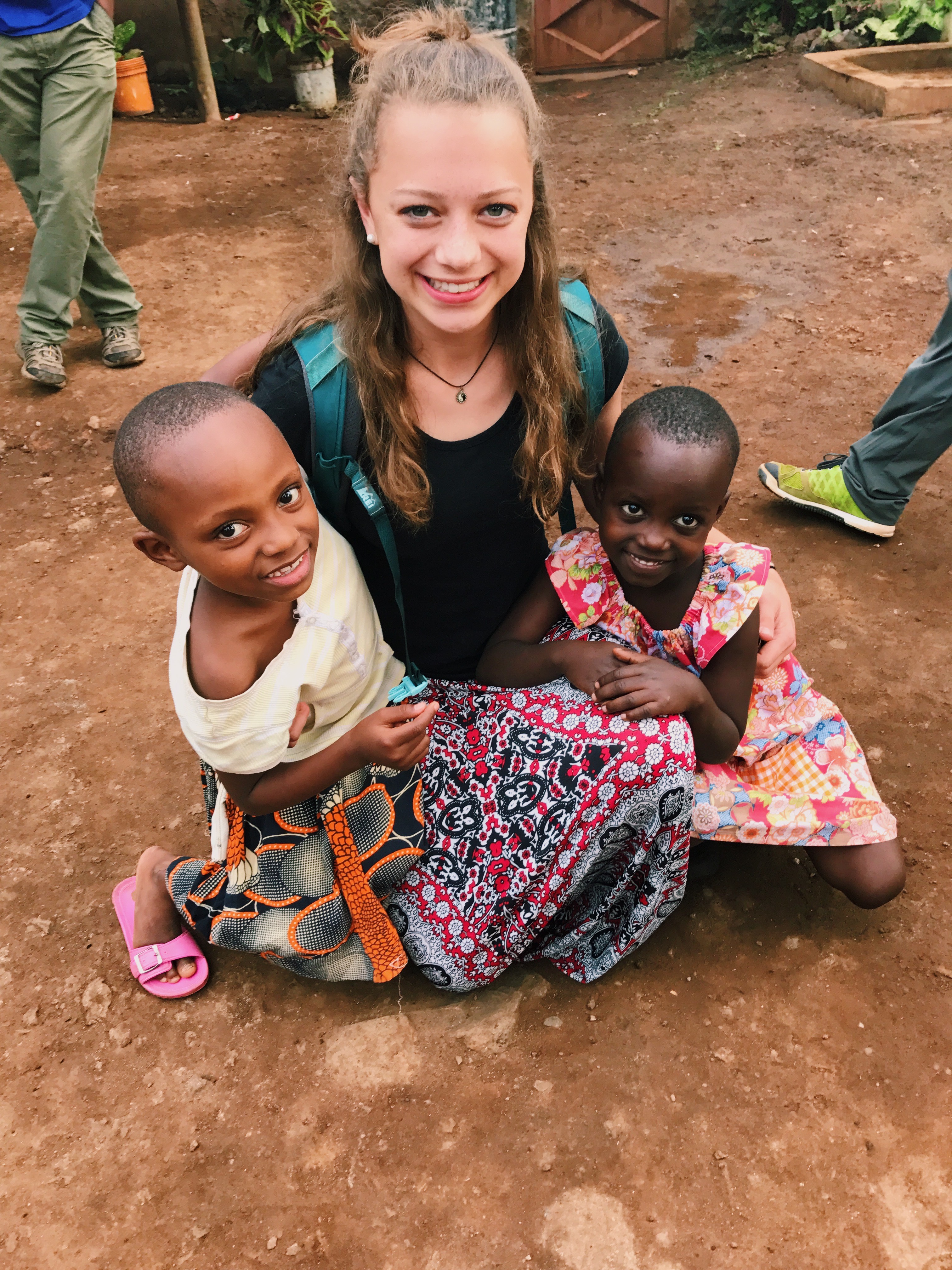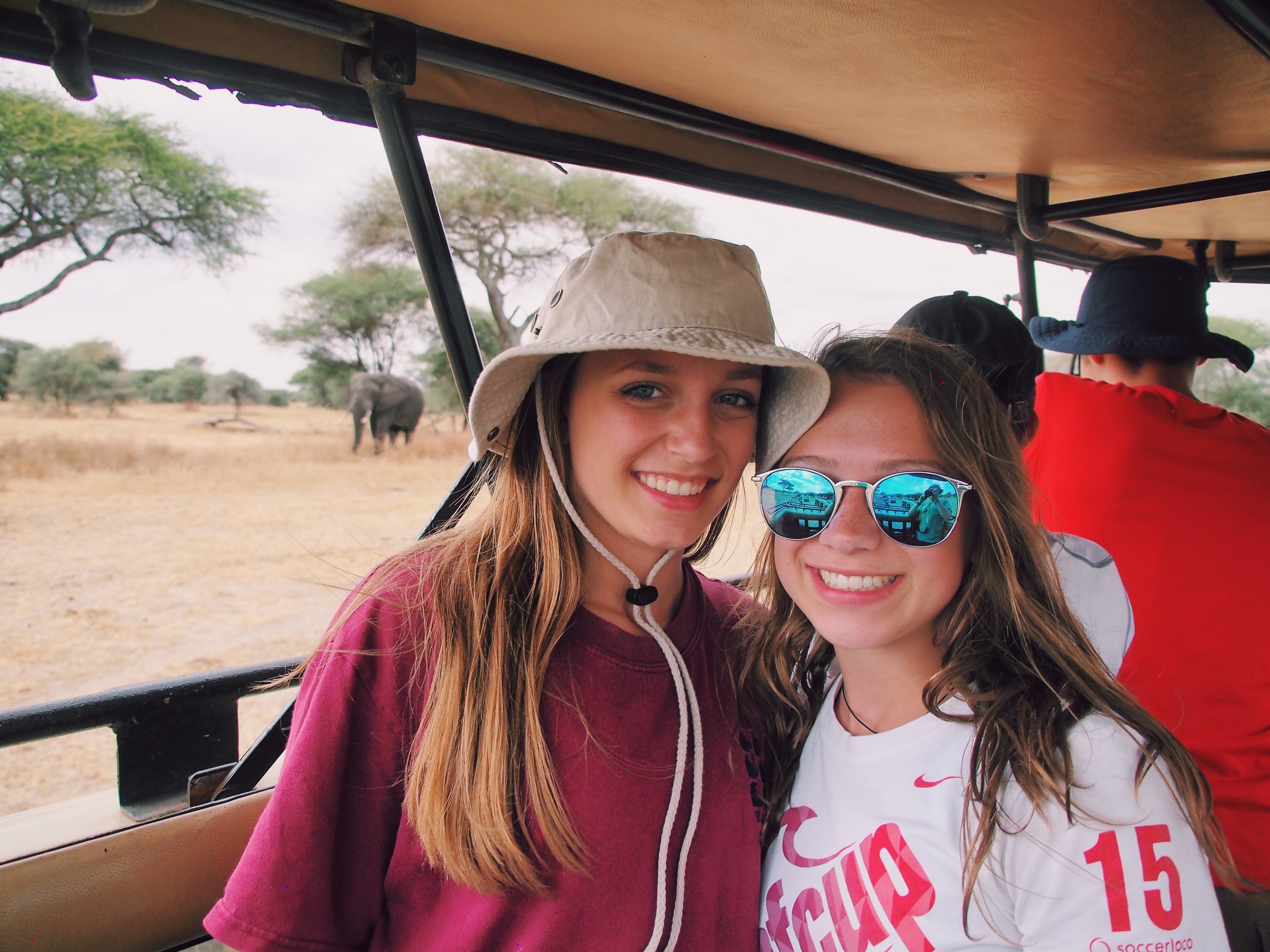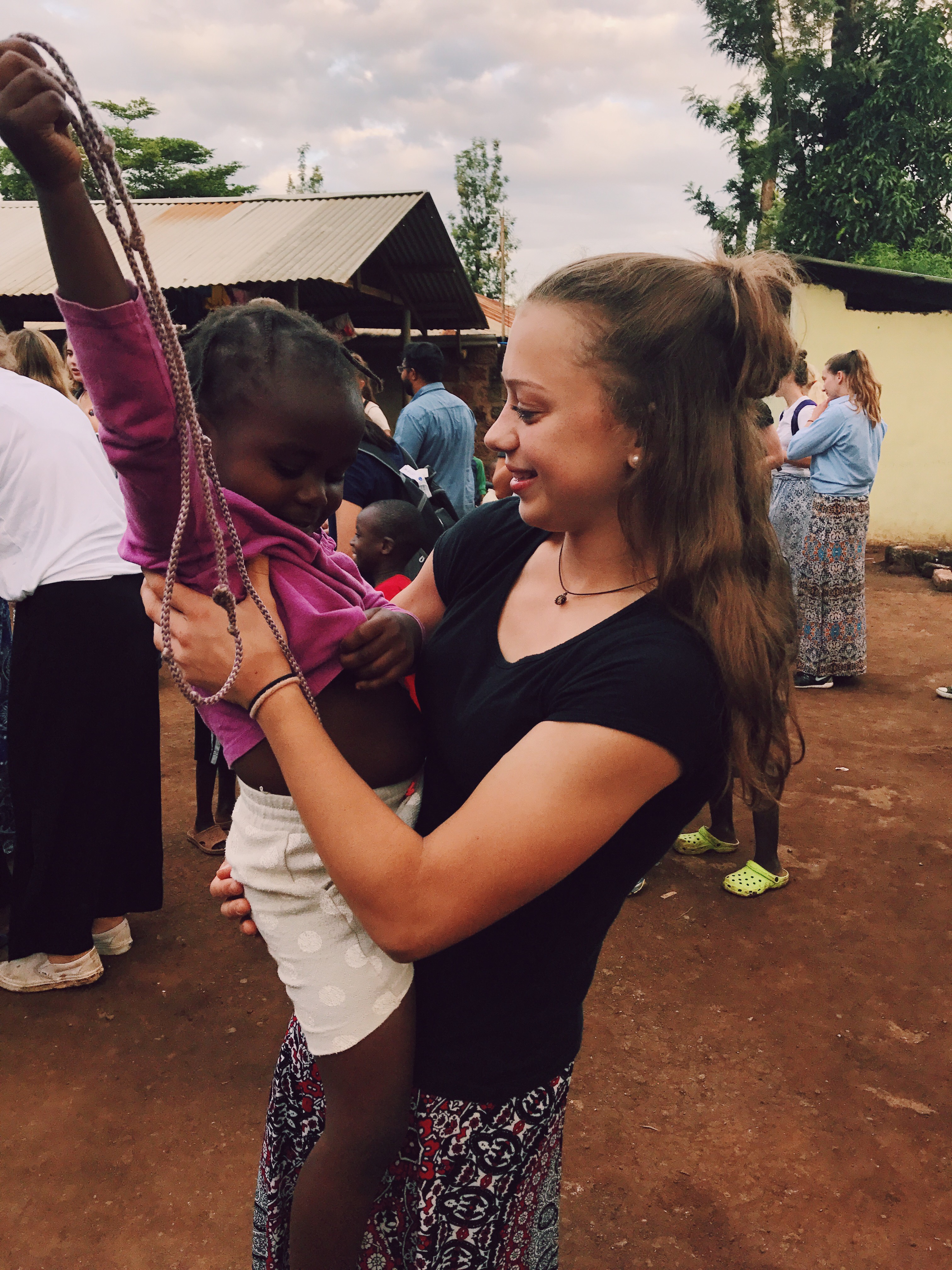 Name: Carolyn Maslanka
Name: Carolyn Maslanka
Hometown: Princeton, NJ
Grade in school: Senior
GLA program: Galápagos: Preserving Nature’s Wonders (2016), Tanzania: Heart & Soul of Africa (2017)
Passion or dream: To make connections with people through pediatric work
After her program with GLA to the Galápagos in 2016, Carolyn gained a new awareness of global issues and how they manifest in daily life, especially for residents of developing communities. Yet, she was surprised to discover upon returning home that this awareness wasn’t common among her peers. “A short while ago, someone asked me what a developing country is. Initially, I was shocked that a sixteen-year-old didn’t know this. I realized what a bubble we live in, and that some people have no exposure to the wider world around us. I did my best to explain, but I realized my own understanding largely came from going out and seeing it.”
Carolyn and her sister decided to start the club Seven Elements. She partnered with another community member who had a common interest in sharing knowledge gained through travel experience with their community.
“The most sustainable way to help the world is to get hands-on experience, and then come back to your community and educate all those who are uninformed about what they can in turn do to better the world.”
This summer, Carolyn traveled once again, this time to Tanzania, where she volunteered in a primary school classroom short on teachers and resources. Here are some of her reflections on service-learning, leadership and working in the developing world.
Carolyn, it’s awesome that you’re using your club and your experience abroad to spread knowledge and awareness about the world. What’s the biggest misconception you think the public has about Tanzania?
“It’s a misconception that the public has about Africa in general—just the whole ‘starving children’ image. To be honest, I went to Tanzania with a somewhat similar expectation. Turns out, Tanzania is full of some of the most spirit-filled children and individuals I’ve ever seen. Yes, there are issues in the country, as there are in every country. But you can go serve a community with the objective of learning about their culture in mind, not necessarily to fix all their systemic problems or rescue them from their suffering.”
What was the difference between the two programs you attended: Galápagos and Tanzania?
“The Galápagos program is all about being in love with the world and its most beautiful, natural places. Students have to be willing to listen and speak up for those who literally don’t have a voice—plants and animals. Tanzania is a very different experience. You have to be comfortable with getting up to command a classroom. You can’t be afraid of embarrassment, and must be ready to step out of your comfort zone and have a meaningful conversation.
Going into my second program, I was worried that it wouldn’t be as amazing. But I was wrong! I intentionally chose two very different programs so that I wouldn’t be tempted to compare them against each other.”

Do you have advice for students looking to take up a leadership role?
“You just have to start. It took a lot for me to be able to say to my peers, ‘Those kids in the back don’t know what they’re doing. Can you go over and help them?’ But that’s what our group needed at the time to accomplish our objective.”
Do you feel like you acquired new skills, or overcame any particular challenge?
“Working in the Tanzanian classroom posed all kinds of challenges. The very first day, we realized we couldn’t communicate with the teacher. We had to work with it and start at step one! My group figured out who our students were, identified their language capabilities. We came up with a plan for every day, but sometimes the plan didn’t work. Then we had to learn flexibility and being able to go with the flow. I definitely learned to think on the fly. Most of the skills that came out of this experience are teamwork-related. We divided and conquered, we spread out so that we could understand individual needs of our students. We observed and listened.”
What’s your ideal next service-learning project?
“I’d love to help out Syrian refugees.”
How do you want people to feel after leaving a place where you’ve served as an expat volunteer?
“I want the community I meet to feel that someone was really able to reach out to them. I wanted my students in Tanzania to know that they are capable of a lot, and that someone would be able to help get them to their full potential. On the Kilimanjaro hike, I talked with one of our guides and he told me his story: He loved learning, but couldn’t pursue his dreams because of a lack of family resources and money. Now I’m looking into ways to help raise money for ambitious students.”


